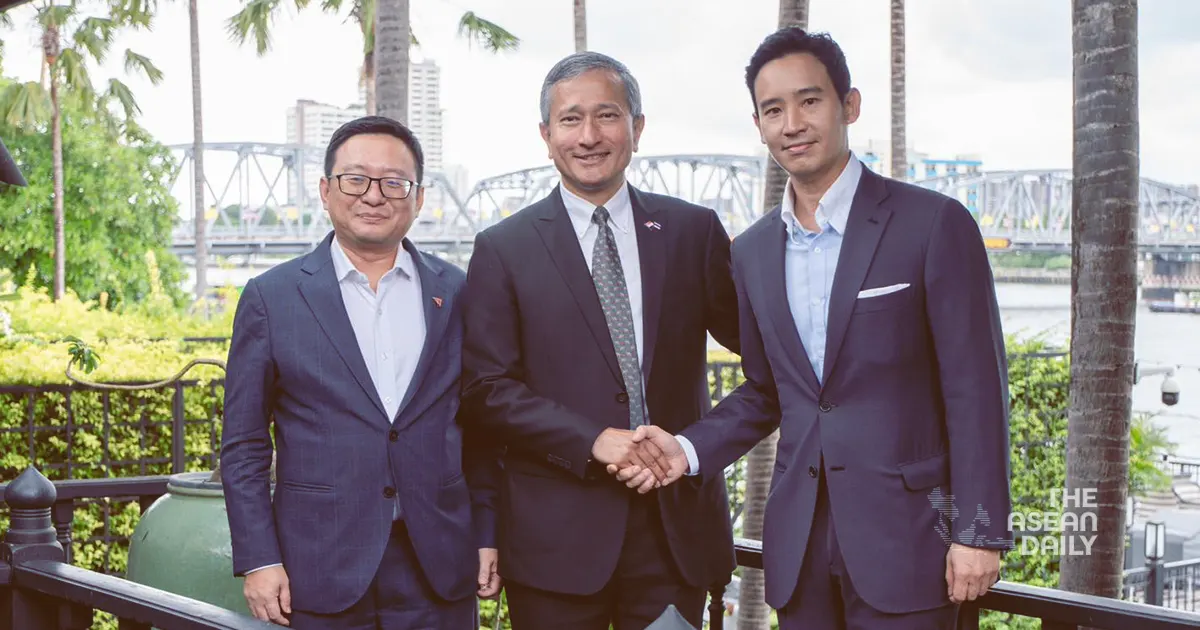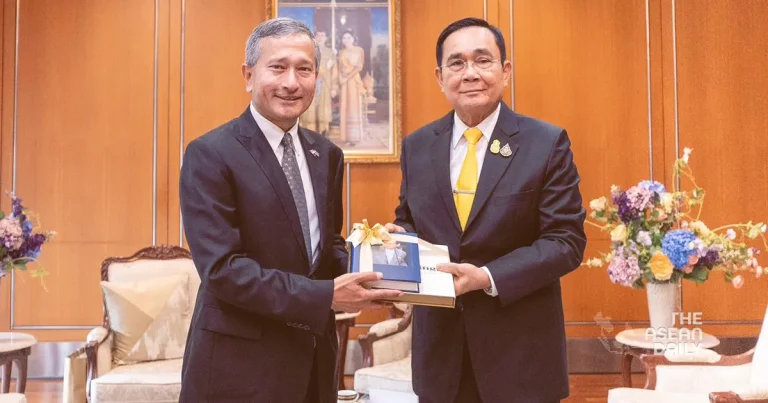27-6-2024 (SINGAPORE) In the wake of his two-day visit to Thailand, Singapore’s Minister for Foreign Affairs, Vivian Balakrishnan, underscored the long-standing and robust relationship between the two nations. The visit served as a platform to reinforce cooperation and address the evolving global landscape.
Vivian, alongside his Thai counterpart Maris Sangiampongsa, officiated the opening ceremony of the 14th Thailand-Singapore Civil Service Exchange Programme (CSEP), aimed at enhancing collaboration between the two civil services in areas such as health, education, and trade facilitation. The previous iteration of CSEP took place in 2017.
Beyond the official engagements, Vivian held meetings with various Thai political leaders, including members of the government, privy council members Surayud Chulanont and Prayut Chan-o-cha, as well as the leader of the Thai parliament’s largest party, the Move Forward Party.
Reflecting on the visit, Vivian lauded the close relationship between Thailand and Singapore, marking 60 years of diplomatic relations. He noted that Singapore’s age and its bilateral relationship with Thailand were intertwined, as Thailand was one of the first countries to recognize Singapore’s independence.
Expressing gratitude for Thailand’s assistance during the SQ 321 incident, where severe turbulence led to one fatality and several injuries, Vivian commended the Thai medical staff who promptly attended to the passengers and crew upon the emergency landing in Bangkok.
Bilateral trade between the two countries currently stands at S$41 billion annually, and Singapore was Thailand’s second-largest foreign investor in 2023. “We have real stakes in the Thai economy, and we believe in its potential. We want Thailand to succeed,” Vivian said.
In an era of global volatility, Vivian emphasized the importance of countries like Thailand and Singapore doubling down on engagement and economic integration, while continuously seeking new opportunities in the emerging economy.
Vivian encouraged a long-term perspective, noting that both Singapore and Thailand had made significant economic strides in the post-war era, enabled by the multilateral rules-based liberal economic order that fostered investments, global supply chains, and the free flow of capital.

However, Vivian acknowledged that the pillars of this world order that prevailed for the past five decades are now under pressure, both domestically and globally. As a result, Singapore and Thailand can no longer afford to “simply keep doing more of the same” and must find innovative ways of conducting business.
Within ASEAN, Vivian advocated for doubling down on regional integration and connectivity, increasing infrastructure investment to enhance competitiveness, boosting intra-ASEAN trade, and enhancing the region’s ability to produce and market competitive food and renewable energy offerings globally.
“The more unsettled the world and the old formulas for peace and prosperity are under pressure, the more we need to double down within ASEAN and double down bilaterally. You need to look for innovative win-win solutions and take a long-term, constructive, mutually beneficial approach for this. I am confident we can find it,” Vivian asserted.

Addressing Thailand and Malaysia’s exploration of joining BRICS, Vivian stressed that ASEAN remains the fundamental organizing unit for Southeast Asia, with no substitute for its population of 680 million and a GDP of US$3.5 trillion.
However, he acknowledged that countries should not restrict themselves solely to ASEAN, citing Singapore and Vietnam’s participation in the Comprehensive and Progressive Agreement for Trans-Pacific Partnership, and Thailand and Indonesia’s interest in joining the Organisation for Economic Cooperation and Development (OECD).
“It is not either or. It is additive,” Vivian said, emphasizing that attempts to broaden markets and reach wider architectures are not “inimical” to ASEAN’s overall growth or bilateral relations, as long as they lead to greater openness, inclusiveness, and a level playing field, making ASEAN member states more attractive for investments and promoting trade.




